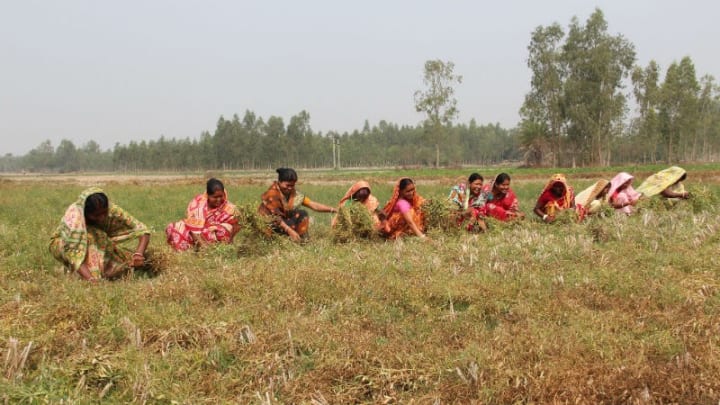Reforms always scare status quoists, especially when there is vested interest involved. While others cling on to an existing situation for the fear of the “unknown”, even if that situation is not productive, does not serve the purpose it is supposed to serve, apart from being detrimental to the interests of the people. Add politics to it and the result is a lethal cocktail of scare-mongering, misinformation and disinformation, of political posturing and attempts to instigate a section of the population and spread civil unrest—the way it happened in the agitation against the Citizenship Amendment Act. This time it is about the landmark reforms in the agriculture sector. A desperate opposition, in particular the Congress, in search for relevance, as its footprint shrinks from across the country, has pinned its hopes on the agriculture sector reforms to revive its dwindling fortunes. While it is the Opposition’s democratic right to seek political relevance—and demonstrations are a means of doing that—but the Prime Minister too has a point when he accuses them of opposing all the reformist steps he has taken, just for the sake of opposition. What this country desperately needs is multiparty consensus on issues of public importance. Consensus is a hallmark of all mature democracies. But in India, even if parties agree on issues of national importance, more often than not such unity falls prey to political and vote bank interests. Something similar has happened in the case of the agricultural reforms as well. As reported by this newspaper, the same parties that are now volubly opposing the sidelining of the Agriculture Produce Marketing Committees (APMCs)—even the Congress and the Shiromani Akali Dal, the two most vocal opponents—were part of the Parliamentary Standing Committee on Agriculture, which in 2019 had said that the sector needed radical reforms and that the APMCs were robbing the farmers of their dues. The committee report had red flagged the “limited numbers of traders in APMCs”, which resulted in the reduction of competition, “cartelization of traders, undue deduction in the name of market fee, commission charges etc”. As the report had pointed out, when market fees and commissions were to be charged from the traders, these were being collected from the farmers, thus reducing their net proceeds. It should not be forgotten that the agriculture sector and its allied services provide employment to nearly 50% of the country’s population and that out of this, 86% of farmers are considered small or marginal—people who eke out a hand to mouth living, while the middlemen, known as arahtiyas in some states, go from riches to riches. That these middlemen and rich farmers often have political interests aggravates matters. Punjab alone has over 25,000 arahtiyas and the state government earns Rs 3,500-3,600 crore annually from the APMCs, which should explain the political turmoil in that state over APMCs being made toothless. But considering Punjab alone has small and marginal farmers numbering around 4 lakh, with land holding of less than 2 hectares, to continue with status quo amounts to keeping a huge swathe of the state’s population beholden to and at the mercy of an exploitative system. Amid this, a ludicrous argument being floated is about the destruction of the moneylender-borrower “relationship” of arahtiyas and farmers if these reforms are carried out. Since when did moneylenders, who work outside the banking system, turn so generous that the poor borrowers would feel the need to preserve their “relationship” with them? The other issue being used to scare farmers is the bogey of the private sector. This is typical resistance coming from a socialist thought process, where the business of doing business must be controlled by the state and not by the private sector, notwithstanding the corruption eating away the innards of such a system. Since a regulatory framework is being developed for farmers and their access to private players and vice versa, it is time for suggestions on making the framework user friendly. It is time to look at the future, to move forward. That the whole market has been opened up for farmers is a huge step in farm reforms. But sadly some politicians are more interested in politics even though knowing full well that they are thus doing great disservice to the farmers.

